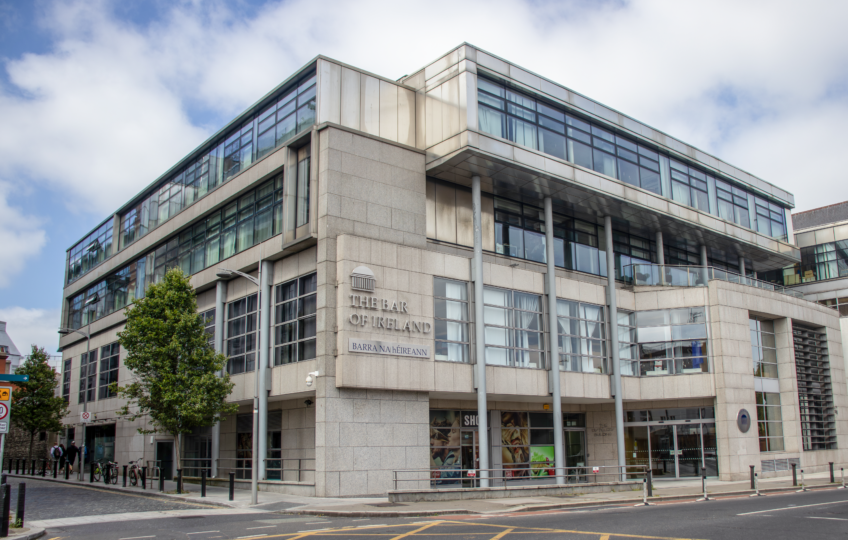Introduction
The Bar of Ireland is an independent referral bar whose members hold themselves out as willing and obliged to appear in Court on behalf of any client on the instructions of a solicitor and to give legal advice and other legal services to clients.
The Bar of Ireland’s Code of Conduct was amended some years ago to allow barristers to receive instructions other than through solicitors – i.e. through accountants and other suitable agents acting on behalf of clients. It has now been further amended to permit direct instructions from clients. In both cases, this is limited to non-contentious matters. Of course, just as when barristers are approached through solicitors, it is also applicable only to services of a kind barristers provide and the practices of the particular barristers approached.
A barrister has full discretion to decline such instructions.

Frequently Asked Questions
Who is eligible for direct access?
There is no limitation as to the class of individuals or entities that can avail of direct access.
What does 'other than contentious' mean?
Section 99 of the 2015 Act provides a definition of ‘contentious matter’ as being:
“[A] matter that arises in, and that relates to the subject matter of, proceedings before any court, tribunal or other body or person before which the respective legal rights and obligations of two or more parties are determined, to which the person instructing the practising barrister concerned is a party”
What this means is that where there are two or more parties in legal dispute, the matter is likely to be considered contentious. A matter may begin as non-contentious, but subsequently become contentious, and it may also be obvious, long before it becomes contentious, that it will become contentious.
Does a barrister have to accept my instruction?
No. While barristers, in considering to accept direct access instructions, are under an obligation to satisfy themselves that they have the required knowledge, competence and expertise to properly provide the legal service in the particular area of law in question, they are not obliged to accept direct access instructions…
Of course, it is not lawful or in compliance with our Code of Conduct to refuse to take instructions on any of the discriminatory grounds set out in Section 3(2) of the Equal Status Act 2000 (as amended).
Pre-Contentious Matters
One scenario in which barristers may well refuse direct instructions is where it is clear or highly likely that a matter will become contentious and, therefore, that a solicitor’s involvement will be required. In such matters, save where advice is nevertheless sought on very net points that can be dealt with without reference to the coming dispute, it will often make more sense to involve the solicitor from the outset. Whether this is so, of course, along with whether to refuse direct instructions for this reason, is a matter for each barrister in each particular case.
What can I expect to pay for direct barrister services?
Fees are always negotiated between the barrister and their client, whether the client acts through their solicitor or not. They will reflect the complexity of the problem, the financial implications of the transaction and the degree of expertise and experience used by the barrister concerned.
Very often, especially in contentious matters which are inherently unpredictable, an overall exact fee will not be capable of calculation. However, even in those circumstances, the basis for the charging of fees is agreed upfront between the client and the barrister; and the barrister is obliged to provide a written statement (known as a Section 150 letter) to the client detailing same.
In what circumstances should I rely on a solicitor?
In the vast majority of instances, advancing your legal query through a solicitor in the first instance is an efficient approach. For example, not all matters may require the expertise or contributions of a barrister; and where they are required; a solicitor will be best placed to distil what the key legal issues are that might be then best referred to a barrister. Barristers are advisers and advocates. Solicitors are much more appropriate professionals to deal with the implementation of legal transactions, whether or not they suggest taking Counsel’s advice on particular points. Indeed, barristers are generally unsuitable to provide general assistance in implementation of transactions.
One area where a solicitor must always be relied upon, is in respect of contentious matters. A barrister may not accept direct instructions in respect of contentious matters.
How do I locate a barrister to instruct?
You can locate a suitable Barrister through The Bar of Ireland website which allows members of the public to identify expertise through our online ‘Find a Barrister’ facility.
What information do I need to provide the barrister?
Where you have decided that the services of a barrister are desirable, it is useful in the early stages to ascertain whether the barrister is available to accept direct access instruction. As outlined below, acceptance of instructions is at the discretion of the barrister. A barrister who is in a position to take your instructions will be able to indicate what information will be required.
Where specialised or substantial factual research must be done or large amounts of information must be collected, a barrister may well feel that this is best done by a solicitor and for that reason, may well refuse direct instructions or require that it be separately obtained or collated before direct instructions can be accepted.
